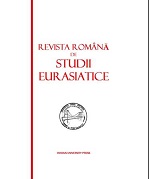MARSHALL PLAN AND ITS APPLICATION IN THE COMMUNIST STATES
MARSHALL PLAN AND ITS APPLICATION IN THE COMMUNIST STATES
Author(s): Maria BolocanSubject(s): History
Published by: Ovidius University Press
Keywords: Reconstruction of Western Europe; European Economy; Response; Cold War; Communist Ideology.
Summary/Abstract: The response of European states in the U.S. initiative was prompt and reflected good coordination between them. Thus, on June 27, 1947 representatives have a less than 16 European countries (Austria, Belgium, Denmark, France, Greece, Iceland, Ireland, Italy, Luxembourg, Netherlands, Norway, Portugal, Sweden, Switzerland, Turkey and the UK) have gathered in an extraordinary conference in Paris to discuss the implications of aid and implementation procedures to start U.S. funds. From the Paris conference missed the representatives of the Soviet Union, Germany, Spain and the Eastern Europe countries. Soviet Union and Eastern European states how were in the sphere of Kremlin refused the Marshall Plan for political reasons. The General Conditions of the Marshall Plan did not fit with the ideology of communism practiced by the Soviets and their satellite states. The refusal of the Soviet Union did not surprised American political leaders nor the Europeans, although Secretary of State George Marshall offer was for all European, U.S. officials have devised the Marshall Plan to strengthen Western European and aggression against the spread of communism. This Plan was seen in political circles in Washington as a counterweight to Communism in Europe was already divided by occupation militarǎ. So did the U.S. strategy eastern Europe to remain for long in the Soviet sphere of influence while western continent came under the "protection" of the United States and will be an important economic reconstruction, political and social.
Journal: Revista Română de Studii Eurasiatice
- Issue Year: 9/2013
- Issue No: 1+2
- Page Range: 109-122
- Page Count: 14
- Language: English

